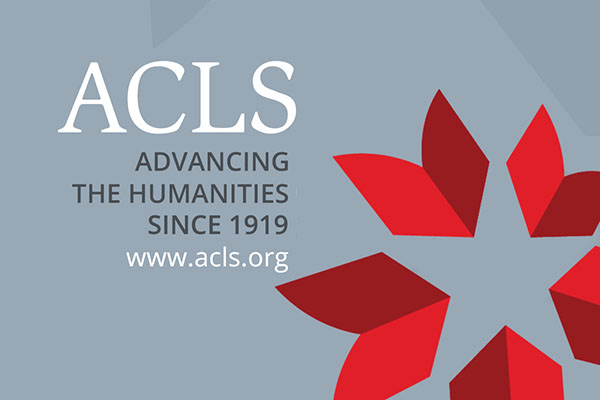BOONE, N.C. — Appalachian State University’s Dr. Mira Rai Waits has earned up to $40,000 in fellowship support for her book project exploring prisons in modern India. She is among 81 American Council of Learned Societies (ACLS) fellows chosen for 2020 and three Indian Americans selected for the honor.
The ACLS Fellowship program awards fellowships to individual scholars working in the humanities and related social sciences. The fellowship’s monetary award supports scholars while they devote six to 12 continuous months to full-time research and writing, and it can be used at the fellow’s home institution, abroad or at another appropriate site for research.
Waits, who is an assistant professor in the College of Fine and Applied Arts’ Department of Art, was selected for her book project “Colonial Carcerality: The Birth of the Modern Prison in India,” which explores the spatial history of British colonial prisons in India. Carcerality is the state or quality of being incarcerated in carceral, or prison-like, spaces.
“A spatial history reveals how colonial Indian prisons both exemplified and contradicted the claims of British rule, arguing that prison space was not simply a natural and passive arena where events unfolded, but rather was produced through material experience and its visual representation,” she said.
About Mira Rai Waits
Waits is an art and architectural historian of modern and contemporary South Asia. Her research focuses on postcolonial theory, visual culture studies, modern architecture and urbanism, and social justice studies.
She has published her work in the journal Visual Culture in Britain and the Journal of the Society of Architectural Historians, as well as in the anthologies “Across Time and Space: Architecture and the Politics of Modernity,” “Neocolonialism and Built Heritage: Echoes of Empire in Asia, Africa, the Middle East and Europe” and “Cultures of Memory in the Nineteenth Century: Consuming Commemoration.”
Her research has been funded by the University of California President’s Fellowship Program and the Paul Mellon Centre for Studies in British Art. She has held postdoctoral fellowships with the Mahindra Humanities Center at Harvard University and the Interdisciplinary Humanities Center at the University of California, Santa Barbara.
Waits teaches courses on Asian art and architectural history, Islamic art and architectural history, contemporary Asian visual culture and the visual culture of the global city.
More on Waits’ fellowship project
“Introducing a new system of punishment based on long-term incarceration, prison construction was among the most important infrastructural changes brought about by the British colonization of India,” Waits said.
For her project, Waits plans to write a spatial history of British colonial prisons in India by analyzing the visual culture that developed surrounding these spaces — one that included objects such as prints, architectural plans, drawings and photographs.
Ultimately, “Colonial Carcerality” demonstrates how a spatial history of prisons is of fundamental importance, she said, “as it provides a critical model for engaging with the prison from a humanistic approach, thereby expanding the possibilities for how we interpret and imagine prisons.”
What do you think?
Share your feedback on this story.
About the Department of Art
One of seven departments housed in the College of Fine and Applied Arts, the Department of Art at Appalachian State University prepares students to explore art, identity, expression and creative problem-solving while challenging them to go beyond their previous limits by discovering new connections to culture. The department offers degrees in art and visual culture, art education, graphic design, studio art, photography and graphic communications management, with minors in art history, studio art, photography and graphic communications management. Learn more at https://art.appstate.edu.
About the College of Fine and Applied Arts
Appalachian State University’s College of Fine and Applied Arts is a dynamic and innovative group of seven academic departments, bringing together a variety of perspectives, experiences and real-world education to provide unique opportunities for student success. The college has more than 3,500 undergraduate and graduate majors. Its departments are Applied Design, Art, Communication, Military Science and Leadership, Sustainable Development, Sustainable Technology and the Built Environment, and Theatre and Dance. Learn more at https://cfaa.appstate.edu.
About Appalachian State University
As a premier public institution, Appalachian State University prepares students to lead purposeful lives. App State is one of 17 campuses in the University of North Carolina System, with a national reputation for innovative teaching and opening access to a high-quality, cost-effective education. The university enrolls more than 21,000 students, has a low student-to-faculty ratio and offers more than 150 undergraduate and 80 graduate majors at its Boone and Hickory campuses and through App State Online. Learn more at https://www.appstate.edu.













